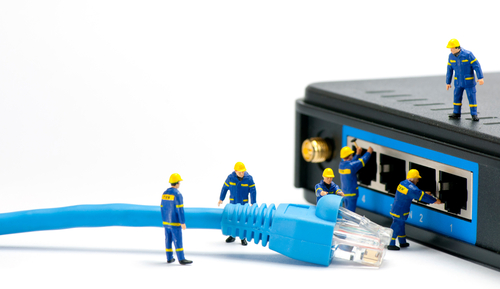Ofcom: Telecom Firms Must Do More To Help Struggling Customers

Despite falling average telecom prices, two million UK homes are struggling to afford internet access, comms regulator finds
UK communications regulator Ofcom has called on telecom firms to do more to help UK households struggling financially to maintain Internet access.
Ofcom said that despite average telecoms prices falling in recent years, approximately two million UK homes still struggle to afford internet access.
And despite the former UK incumbent BT introducing in June a half-price tariff for fibre broadband connections for low income households, Ofcom said that telecom firms could face further intervention if they don’t do more to help those who need it most.
![]()
Cheaper tariffs
Ofcom did “welcome the action some companies have taken since then to introduce low-cost packages for people on benefits, or improve their existing ones.”
And it said that new research published this week reveals that broadband and mobile customers are getting better services while prices have been falling on average.
However, many people on low incomes are struggling to pay, and not all are getting the support they need, Ofcom said.
The regulator said that its annual Pricing Trends report provides an analysis of what UK customers paid for their broadband and phone services in 2020.
It found that average ‘new customer’ prices for superfast broadband and landline bundles last year were nearly 20 percent cheaper in real terms than in 2015, while the average amount of broadband data households used increased by 342 percent over that time, and that average download speeds rose by 178 percent.
Similarly, the Ofcom report found that the average cost of mobile services in 2020, based on average use across all mobile users, was over 20 percent cheaper in real terms than in 2015, while people used 369 percent more data.
Struggling to pay
Yet despite prices becoming cheaper, people are struggling to pay their bills, Ofcom found, saying that around two million households struggle to afford internet access.
It pointed out that since December BT, Community Fibre, Hyperoptic, KCOM, Virgin Media and VOXI have all introduced low-cost tariffs for people on benefits, or improved their existing ones.
The problem stems is that take-up of these targeted tariffs has been low, with only around 40,000 households signed up.
This represents around 0.15 percent of all UK homes, which is only 1 percent of those in receipt of out-of-work benefits, said Ofcom.
It said that its latest research also shows that 2 percent of broadband customers and 3 percent of mobile customers are in arrears, while 0.1 percent of broadband customers and 0.2 percent of mobile customers are disconnected by their provider every month.
Social tariffs?
Between January 2020 and January 2021, total debt among broadband and mobile customers increased from £475m to £550m.
Providers have made some progress, but there is more to do, Ofcom stated.
And it warned that if the telecoms industry does not take sufficient action to address its concerns, it think there “would be a strong case for exploring whether mandatory social tariffs would be necessary to fill the gaps in support, alongside other potential options.”
“Many of us take being able to get online and use a mobile phone for granted, but if you’re on a low income or have fallen on hard times, being able to pay for these vital services can be really tough,” said Lindsey Fussell, Ofcom’s networks and communications group director.
“We’re concerned that many households on the lowest incomes are struggling to stay on top of their bills and providers need to take action to make sure these customers get the help they need,” said Fussell.
BT response
BT, which introduced a half-price tariff for fibre broadband connections for low income households in June, gave its response to Silicon UK.
“Since launching our Home Essentials packages at the end of June we’ve been pleased with how strong take up has been,” a BT spokesperson said. “However, we want to encourage more customers who need our help to get in touch.”
“We know from recent research that 54 percent of people are uncomfortable sharing their problems due to embarrassment and fear particularly when it comes to their finances, and we want to help break down those barriers of asking for help with Here For You – a campaign to raise awareness of the all the support we provide customers who need more help – and we encourage similar approaches across the industry,” said the BT spokesperson.
“Fast, reliable connectivity has never been as important as it is today, with millions of people relying upon our networks to get back on their feet after the pandemic – so we launched BT Home Essentials our low-cost fibre package that will now include all customers on Universal Credit, to provide a potential 4.6 million families across the UK with half-price fibre broadband and calls,” the spokesperson concluded.